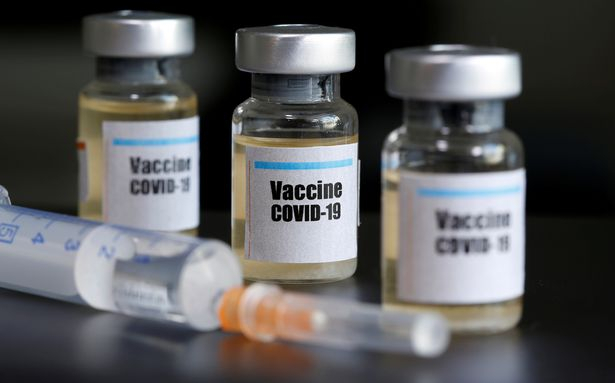Moderna's COVID-19 vaccine has produced antibodies capable of nullifying the fatal coronavirus in all the patients registered in its vaccine trial. However, the researchers claimed that the vaccine did show a minor side-effect in a few trial patients.
The global pandemic has infected over 13.4 million people and killed more than 580,000. Despite many countries going under lockdown and observing social distancing practices, the cases appear to rise consistently.

Vaccine Increased Production of Neutralizing Antibodies
The findings of the study conducted by the National Institutes of Health were published in the New England Journal of Medicine on Tuesday. The study was conducted on a group of 45 healthy volunteers aged 18 to 55 years of mixed race. The group was divided into three, with 15 members in each trial group, receiving vaccine doses of low, medium, and high intensity.
On the first day of the study, the patients were given the first shot of the vaccine, which was followed by a booster shot injected four weeks later. Though there were no major side-effects, around 15 patients who were injected with 100-microgram dose of the vaccine complained of fatigue, chills, headache, muscle pain, and pain at site of injection, reported STAT.
Researchers found that all the trial patients who received the COVID-19 vaccine made more neutralizing antibodies in most patients who have recovered from Covid-19. However, the results changed dramatically with the second injection, four weeks after the first, causing an improved immune response in the patients, reported the study.
Moderna CEO Stéphane Bancel issued a statement, terming the data encouraging and an important step forward in the development of the vaccine termed mRNA-1273. "We are committed to advancing the clinical development of mRNA-1273 as quickly and safely as possible while investing to scale up manufacturing so that we can help address this global health emergency," Bancel was quoted by the outlet.
Uncertainty Over the Life Span of Antibodies
The outlet quoted Anthony Fauci, director of the National Institute for Allergy and Infectious Diseases, the NIH branch that conducted the trial, saying: "The hallmark of a vaccine is one that can actually mimic natural infection and induce the kind of response that you would get with natural infection. And it looks like, at least in this limited, small number of individuals, that is exactly what's happening. The data really look quite good. There were no serious adverse events."
Speaking on the side effects caused in the trials, Tony Moody, a doctor and researcher at the Duke Human Vaccine Institute, told Bloomberg that it would be "unusual" for a vaccine to have this rate of side effects.
"On the plus side, the antibody levels produced were really encouraging. If researchers are measuring the right thing, the vaccine should work. This can only be proved in large trials," he said.
"The vaccine clearly worked in that antibodies against the spike protein were generated, including antibodies that had virus neutralizing capability," said Paula Cannon, professor of microbiology at Keck School of Medicine of USC, adding that the key question will be how long will the antibodies last before they start to wane.
The first phase of the trial by the pharma giant was launched two months after the genome of SARS-CoV-2 was decoded by the scientists. The third and final stage of trial of the Moderna vaccine, termed mRNA-1273, is scheduled to begin on July 27.








